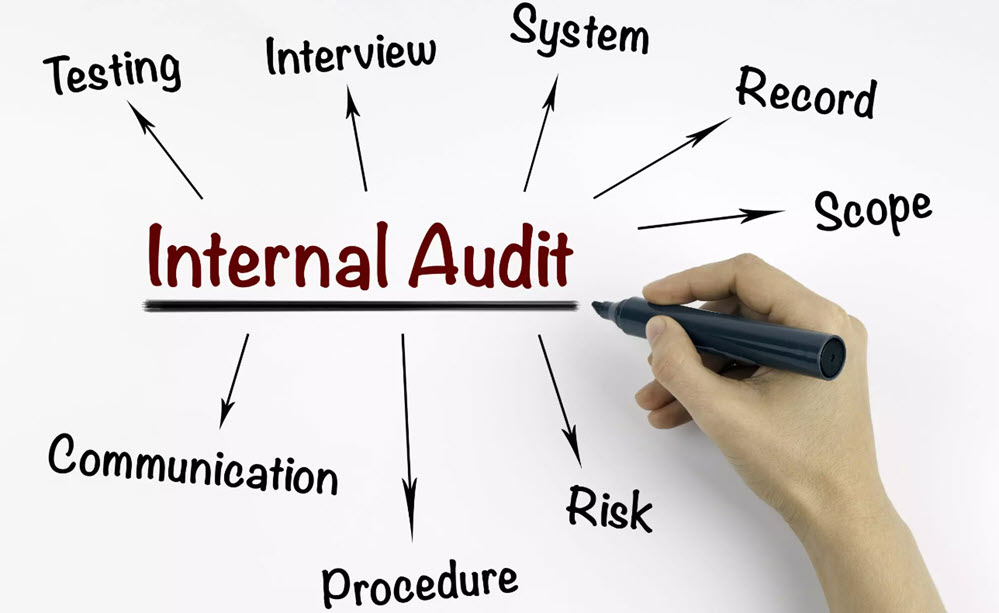EQMS Blog

The Purpose of an ISO 9001 Audit
ISO 9001 is the globally recognised standard for quality management systems (QMS). It provides a framework that organisations of all sizes can use to ensure that their products and services consistently meet customer and regulatory requirements. A crucial aspect of maintaining compliance with ISO 9001 is the audit process. An ISO 9001 audit serves multiple purposes, from evaluating the effectiveness of an organisation’s QMS to ensuring continuous improvement. This article explores the key purposes of an ISO 9001 audit and how it benefits organisations in their pursuit of quality excellence.
Ensuring Compliance with ISO 9001 Requirements
One of the primary purposes of an ISO 9001 audit is to ensure that an organisation’s QMS complies with the requirements set out in the ISO 9001 standard. Compliance is not just about ticking boxes; it’s about establishing and maintaining a system that consistently delivers quality products and services.
Evaluating System Compliance
During an ISO 9001 audit, auditors assess whether the organisation’s processes align with the ISO 9001 standard’s requirements. This involves a detailed review of documentation, procedures, and records to verify that the QMS is properly implemented and functioning as intended. The audit examines various aspects of the QMS, including management responsibilities, resource management, product realisation, and measurement, analysis, and improvement processes.
For organisations, this evaluation is essential because it confirms that they are operating in accordance with international standards, which can enhance their credibility with customers, suppliers, and other stakeholders. Achieving and maintaining ISO 9001 certification through regular audits demonstrates a commitment to quality and continuous improvement, which can be a key differentiator in competitive markets.
Identifying Non-Conformities
Another critical aspect of an ISO 9001 audit is the identification of non-conformities—areas where the organisation’s processes do not meet the standard’s requirements. These non-conformities can range from minor procedural issues to significant deviations that could impact product or service quality. By identifying these issues, the audit provides organisations with an opportunity to address them before they lead to more serious problems.
Addressing non-conformities is not just about correcting isolated issues; it’s about understanding the root causes of these problems and implementing changes to prevent them from recurring. This proactive approach to quality management helps organisations maintain a high level of performance and compliance over the long term.
Driving Continuous Improvement
ISO 9001 is built on the principle of continuous improvement, which is a key purpose of the ISO 9001 audit. Continuous improvement is about making ongoing enhancements to processes, products, and services to achieve better outcomes and increased customer satisfaction.
Assessing the Effectiveness of the QMS
An ISO 9001 audit is not just a compliance check; it’s also an opportunity to assess the effectiveness of the organisation’s QMS. Auditors evaluate how well the QMS is achieving its intended objectives, such as improving product quality, reducing waste, and increasing customer satisfaction. This assessment goes beyond mere conformity to the standard; it looks at how the QMS contributes to the organisation’s overall performance and competitiveness.
For organisations, this means that the audit can provide valuable insights into areas where the QMS is performing well and areas where there is room for improvement. These insights can inform decision-making and help guide the organisation’s efforts to enhance its quality management practices.
Implementing Improvement Initiatives
The findings of an ISO 9001 audit often lead to the implementation of improvement initiatives. Whether it’s refining a process, introducing new technologies, or enhancing employee training, these initiatives are designed to address the issues identified during the audit and to build on existing strengths.
Continuous improvement is a journey, not a destination, and the ISO audit plays a vital role in keeping organisations on track. By regularly reviewing and improving their QMS, organisations can stay ahead of changing customer needs, technological advancements, and regulatory requirements. This ongoing commitment to improvement helps organisations remain competitive and responsive in a dynamic business environment.
Enhancing Customer Confidence and Satisfaction
At the heart of ISO 9001 is a focus on customer satisfaction. An ISO 9001 audit plays a crucial role in ensuring that an organisation’s QMS is aligned with customer needs and expectations, which is essential for building and maintaining customer confidence.
Ensuring Product and Service Quality
One of the main goals of an ISO 9001 audit is to verify that the organisation’s processes consistently produce products or services that meet customer requirements. This involves evaluating how customer feedback is collected and used to improve quality, as well as how the organisation manages non-conforming products or services.
For customers, knowing that an organisation has undergone a rigorous ISO 9001 audit provides assurance that they can expect high-quality products or services. This can be a significant competitive advantage, especially in markets where quality is a key differentiator. By ensuring that quality is maintained at every stage of the process, an audit helps build trust between the organisation and its customers.
Building and Maintaining Trust
In today’s global marketplace, trust is a critical factor in business success. An ISO 9001 audit helps organisations build and maintain that trust by demonstrating a commitment to quality and continuous improvement. For customers, suppliers, and other stakeholders, ISO 9001 certification is a clear signal that the organisation is serious about meeting their needs and delivering value.
Moreover, regular ISO 9001 audits show that the organisation is not resting on its laurels but is actively working to enhance its processes and outcomes. This ongoing commitment to excellence can help strengthen relationships with existing customers and attract new ones, contributing to the organisation’s long-term success.
The Strategic Importance of an ISO 9001 Audit
The purpose of an ISO 9001 audit extends far beyond mere compliance. It is a strategic tool that helps organisations ensure they meet the highest standards of quality management. By evaluating system compliance, driving continuous improvement, and enhancing customer confidence, an ISO 9001 audit plays a crucial role in helping organisations achieve and maintain excellence.
For organisations committed to delivering quality products and services, an ISO 9001 audit is not just a requirement; it is an opportunity to identify strengths, address weaknesses, and build a foundation for sustainable success. Through the audit process, organisations can demonstrate their dedication to quality, improve their operations, and ultimately achieve greater customer satisfaction and business performance.
If you are interested in improving your Quality Management System (QMS) and need support with auditing it, then contact us for a free consultation.
Continue to Outsourcing Internal Audit
Request a free consultation
Contact us to discuss your needs and see how we can support to reach your goal.

Recent posts

ISO 9001 is the internationally recognised standard for quality management systems (QMS). While it is often associated with large corporations, ISO 9001 can provide significant advantages for small businesses as...

In today’s complex business environment, maintaining robust governance and ensuring compliance with regulatory requirements are essential for organisational success. One of the most effective ways to achieve this is through...

An Integrated Management System (IMS) combines several management systems, such as Quality Management System (QMS), Environmental Management System (EMS) and Occupational Health and Safety Management System (OHSMS) amongst other, into...
Just a Few of Our Clients
Request a Free Consultation
Contact us to discuss your needs and see how we can support to reach your goal.












